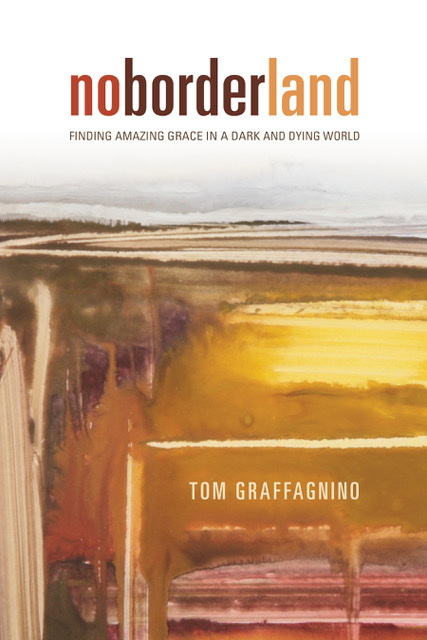Progress is a comparative of which we have not settled the superlative.
– Chapter 2, Heretics, 1905
Progress should mean that we are always changing the world to fit the vision, instead we are always changing the vision.
– Orthodoxy, 1908
My attitude toward progress has passed from antagonism to boredom. I have long ceased to argue with people who prefer Thursday to Wednesday because it is Thursday.
– New York Times Magazine, 2/11/23
Men invent new ideals because they dare not attempt old ideals. They look forward with enthusiasm, because they are afraid to look back.
– What’s Wrong With The World, 1910
Tradition means giving votes to the most obscure of all classes, our ancestors. It is the democracy of the dead. Tradition refuses to submit to that arrogant oligarchy who merely happen to be walking around.
– Orthodoxy, 1908
The modern world is a crowd of very rapid racing cars all brought to a standstill and stuck in a block of traffic.
– ILN, 5/29/26
Comforts that were rare among our forefathers are now multiplied in factories and handed out wholesale; and indeed, nobody nowadays, so long as he is content to go without air, space, quiet, decency and good manners, need be without anything whatever that he wants; or at least a reasonably cheap imitation of it.
– Commonwealth, 1933
A detective story generally describes six living men discussing how it is that a man is dead. A modern philosophic story generally describes six dead men discussing how any man can possibly be alive.
– A Miscellany of Men
None of the modern machines, none of the modern paraphernalia. . . have any power except over the people who choose to use them.
– Daily News, 7-21-06
I still hold. . .that the suburbs ought to be either glorified by romance and religion or else destroyed by fire from heaven, or even by firebrands from the earth.
– The Coloured Lands
The whole curse of the last century has been what is called the Swing of the Pendulum; that is, the idea that Man must go alternately from one extreme to the other. It is a shameful and even shocking fancy; it is the denial of the whole dignity of the mankind. When Man is alive he stands still. It is only when he is dead that he swings.
– The New House, Alarms and Discursions
To hurry through one’s leisure is the most unbusiness-like of actions.
– “A Somewhat Improbable Story.” Tremendous Trifles
This is the age in which thin and theoretic minorities can cover and conquer unconscious and untheoretic majorities.
– ILN, 12/20/19
The past is not what it was.
– A Short History of England
Christianity has not been tried and found wanting; it has been found difficult and not tried.
Men invent new ideals because they dare not attempt old ideals. They look forward with enthusiasm, because they are afraid to look back.
As an explanation of the world materialism has a sort of insane simplicity. It has the quality of a madman's arguments; we have at once the sense of it covering everything and the sense of it leaving everything out.
When men stop believing in God, it is not that they believe in nothing; they will believe in anything
One can hardly think too little of one's self. One can hardly think too much of one's soul.
It is absurd for the evolutionist to complain it is unthinkable for an admittedly unthinkable God to make everything out of nothing, and then pretend that it is more thinkable that nothing should turn itself into everything.
The truth is, of course, that the curtness of the Ten Commandments is an evidence, not of the gloom and narrowness of a religion, but, on the contrary, of its liberality and humanity. It is shorter to state the things forbidden than the things permitted: precisely because most things are permitted, and only a few things are forbidden.
The object of the artistic and spiritual life is to dig for this submerged sense of wonder, that a man might suddenly understand he’s alive, and be happy.
We know that the sinless priests of this sinless people worshipped sinless gods, who accepted as the nectar and ambrosia of their sunny paradise nothing but incessant human sacrifice accompanied by horrible torments…[C]ertain human antagonisms seem to recur in this tradition of black magic. There may be suspected as running through it everywhere, for instance, a mystical hatred of the idea of childhood. People would understand better the popular fury against witches, if they remembered that the malice most commonly attributed to them was preventing the birth of children. The Hebrew prophets were perpetually protesting against the Hebrew race relapsing into an idolatry that involved such a war against children.
But the new rebel is a sceptic, and will not entirely trust anything. He has no loyalty; therefore he can never be really a revolutionist. And the fact that he doubts everything really gets in his way when he wants to denounce anything. For all denunciation implies a moral doctrine of some kind; and the modern revolutio...nist doubts not only the institution he denounces, but the doctrine by which he denounces it. Thus he writes one book complaining that imperial oppression insults the purity of women, and then he writes another book in which he insults it himself. He curses the Sultan because Christian girls lose their virginity, and then curses Mrs. Grundy because they keep it. As a politician, he will cry out that war is a waste of life, and then, as a philosopher, that all life is waste of time. A Russian pessimist will denounce a policeman for killing a peasant, and then prove by the highest philosophical principles that the peasant ought to have killed himself. A man denounces marriage as a lie, and then denounces aristocratic profligates for treating it as a lie. He calls a flag a bauble, and then blames the oppressors of Poland or Ireland because they take away that bauble. The man of this school goes first to a political meeting, where he complains that savages are treated as if they were beasts; then he takes his hat and umbrella and goes on to a scientific meeting, where he proves that they practically are beasts. In short, the modern revolutionist, being an infinite skeptic, is always engaged in undermining his own mines. In his book on politics he attacks men for trampling on morality; in his book on ethics he attacks morality for trampling on men. Therefore the modern man in revolt has become practically useless for all purposes of revolt. By rebelling against everything he has lost his right to rebel against anything.
It is the same with all modern attempts at syncretism. They are never able to make something larger than the creed without leaving something out.
The modern habit of saying"This is my opinion, but I may be wrong" is entirely irrational. If I say that it may be wrong, I say that is not my opinion. The modern habit of saying "Every man has a different philosophy; this is my philosophy and it suits me" - the habit of saying this is mere weak-mindedness. A cosmic philosophy is not constructed to fit a man; a cosmic philosophy is constructed to fit a cosmos. A man can no more possess a private religion than he can possess a private sun and moon.
You can only find truth with logic if you have already found truth without it.
It isn't that they can't see the solution, it is that they can't see the problem.
There comes an hour in the afternoon when the child is tired of 'pretending'; when he is weary of being a robber or a Red Indian. It is then that he torments the cat. There comes a time in the routine of an ordered civilization when the man is tired at playing at mythology and pretending that a tree is a maiden or that the moon made love to a man. The effect of this staleness is the same everywhere; it is seen in all drug-taking and dram-drinking and every form of the tendency to increase the dose. Men seek stranger sins or more startling obscenities as stimulants to their jaded sense. They seek after mad oriental religions for the same reason. They try to stab their nerves to life, if it were with the knives of the priests of Baal. They are walking in their sleep and try to wake themselves up with nightmares.
The typical modern man…has no positive picture at all of what he is aiming at, but only a vague (and erroneous) sensation of progress.
As for our own society if it proceeds at its present rate of progress and improvement, no trace or memory of it will be left at all.
The problem with a madman is not that he is not logical; the problem is that he is only logical.
Unless a man becomes the enemy of an evil, he will not even become its slave but rather its champion.
[W]hile there are stupid people everywhere, there is a particular minute and microcephalous idiocy which is only found in an intelligentsia.
I have sometimes fancied that, as chilly people like a warm room, silly people sometimes like a diffused atmosphere of intellectualism and long words.
Men do not differ much about what things they will call evils; they differ enormously about what evils they will call excusable.
Christianity has died many times and risen again; for it had a God who knew the way out of the grave.
My objection to Mr. Lowes Dickinson and the reassertors of the pagan ideal is, then, this. I accuse them of ignoring definite human discoveries in the moral world, discoveries as definite, though not as material, as the discovery of the circulation of the blood. We cannot go back to an ideal of reason and sanity. For mankind has discovered that reason does not lead to sanity. We cannot go back to an ideal of pride and enjoyment. For mankind has discovered that pride does not lead to enjoyment. I do not know by what extraordinary mental accident modern writers so constantly connect the idea of progress with the idea of independent thinking. Progress is obviously the antithesis of independent thinking. For under independent or individualistic thinking, every man starts at the beginning, and goes, in all probability, just as far as his father before him. But if there really be anything of the nature of progress, it must mean, above all things, the careful study and assumption of the whole of the past. I accuse Mr. Lowes Dickinson and his school of reaction in the only real sense. If he likes, let him ignore these great historic mysteries—the mystery of charity, the mystery of chivalry, the mystery of faith. If he likes, let him ignore the plough or the printing-press. But if we do revive and pursue the pagan ideal of a simple and rational self-completion we shall end—where Paganism ended. I do not mean that we shall end in destruction. I mean that we shall end in Christianity.
For under the smooth legal surface of our society there are already moving very lawless things. We are always near the breaking-point when we care only for what is legal and nothing for what is lawful. Unless we have a moral principle about such delicate matters as marriage and murder, the whole world will become a welter of exceptions with no rules. There will be so many hard cases that everything will go soft.
The refusal of God to explain His design is itself a burning hint of His design. The riddles of God are more satisfying than the solutions of man.
The first effect of not believing in God, is that you lose your common sense.
 Friday, June 22, 2018 at 9:47AM
Friday, June 22, 2018 at 9:47AM 
